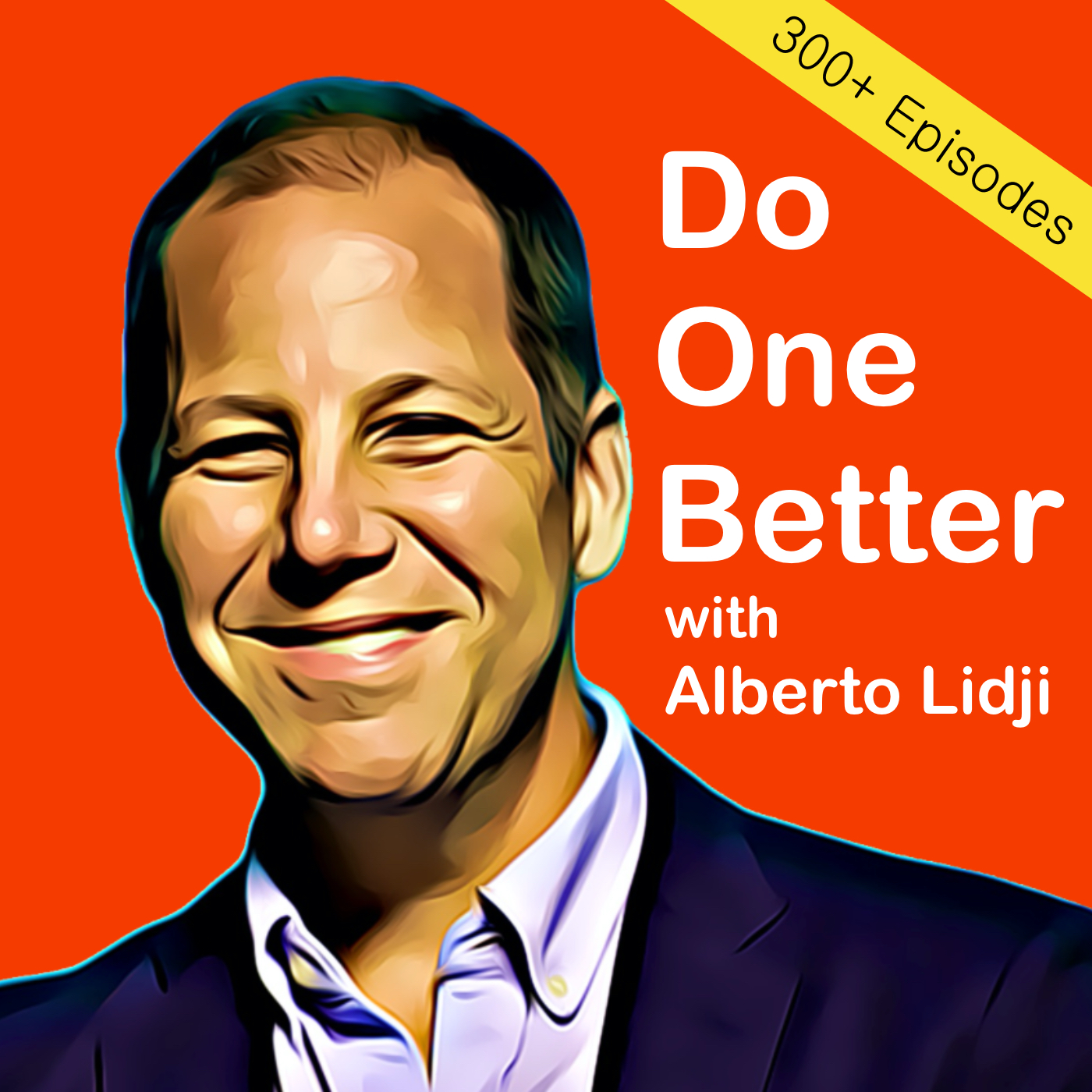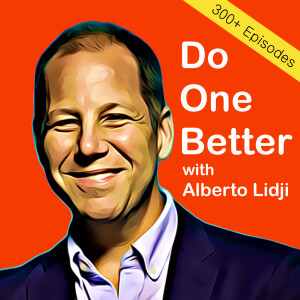

Listen to 300+ interviews on philanthropy, sustainability and social entrepreneurship. Guests include Paul Polman, David Lynch, Siya Kolisi, Cherie Blair, Chiwetel Ejiofor, Bob Moritz, David Miliband and Julia Gillard. Hosted by Alberto Lidji, Visiting Professor at Strathclyde Business School and ex-Global CEO of the Novak Djokovic Foundation. Visit Lidji.org for more information.
Episodes

Sunday Feb 09, 2020
Sunday Feb 09, 2020
CEO of The Fore and The Bulldog Trust, Mary Rose Gunn, joins Alberto Lidji to discuss seed funding for small non-profits and transforming the funding landscape and processes involved.
The Fore is a collective of individuals and businesses coming together to enhance the philanthropy market. The Fore is a seed funder for small organisations in the charity sector in the UK and, if one were to draw parallels with the private sector, one could say they align themselves with the angel investor and venture capital world. The Fore is part of The Bulldog Trust.
Mary Rose notes that at The Fore, they wish to empower people who have come up with great ideas to address a pressing social need and to provide them with funding and expertise to help them create real change.
The Fore only has two criteria to identify those organisations that are eligible to apply for funding:
(1) Applicant organisations need to have an annual turnover of under £500,000
(2) And, they need to be registered in the UK as a non-profit
When asked what the merits are of investing in small organisations – as opposed to larger ones where scale and efficiencies may be more pronounced - Mary Rose replies that nobody would argue in the private sector that there is no merit in having and backing small ventures in the market.
And, the same applies in the social sector: if you really want to have strong innovation, and if you really want to have efficiencies, then you’ve got to let the markets do some of the work.
A lot of the inefficiencies in the charitable sector have arisen because there isn’t enough competition. Mary Rose notes there are criticisms one could direct towards a charitable market that has large players who are constant fixtures for decades or longer.
At The Fore, the grants they make are up to £30,000 for a period of up to 3 years. So she notes these are not huge amounts of money.
These grants are structured in line with the needs of the charity in question. Therefore, a grant might be made entirely up front in year 1, or it might be spread over a number of years; or there might be some other structure that is more appropriate for the circumstances in question. Even though these are grants, Mary Rose does draw parallels to small business loans.
Interestingly, deal flow origination at The Fore is actually not a challenge; quite the opposite.
Mary Rose notes there are 165,000 charities in the UK and of those around 90% have got income of under £500,000. Therefore, the universe of eligible applicants is quite large and it is quite easy for The Fore to spread the word and create awareness of their available funding. They run three funding rounds per year.
They try to ensure applicants don’t have to be unnecessarily burdened by preparing funding applications. Mary Rose mentions that many people don’t have the experience nor the expertise to write a solid business plan, but that doesn’t mean they’re not incredibly entrepreneurial. It’s about plugging these organisations at the right point into a bit of money and into a bit of expertise, and to help them with impact measurement.
At The Fore, they work with diverse partners, such as philanthropists and businesses that wish to improve the world around them by having employee engagement programmes or corporates that simply don’t have the bandwidth to work with numerous, small non-profit organisations.
The Fore can provide a vetted pipeline to such partners. They don’t charge a fee to such partners, but such partners need to bring some resources to the table. As part of The Bulldog Trust, The Fore is a non-profit.
Mary Rose would like to see an intrinsic change to the philanthropy space in the years to come. They want to get funders to think differently about how they fund and to think about the impact of their processes and practices on the organisations they’re looking to support.
In great part, success for The Fore is indicated by whether the philanthropy space is moving in a more positive direction. Mary Rose references a recent study by the University of Bath that found that £1.1bn annually in the UK alone is spent on applying for grant funding and, out of these applications, 63% are unsuccessful. That’s around £700m per year – and she notes this is a completely wasted, inefficiently spent resource.
Mary Rose’s key takeaway: It is important to trust people. If we want to change society we have to give people the agency to change their own circumstances.
Visit Lidji.org for guest bios, episode notes and useful links. Please subscribe and share widely if you enjoy the podcast -- thank you!
No comments yet. Be the first to say something!